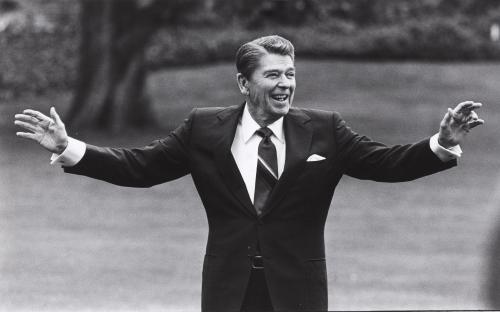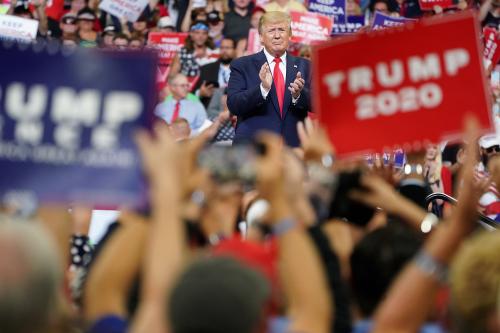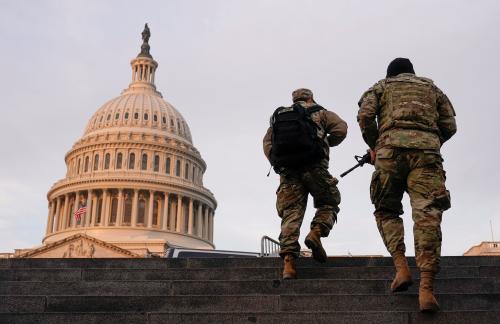He is running out of time. Tomorrow, Donald Trump will take the oath of office. He will do so with historically low approval ratings.
And no wonder. In the weeks since his election, he has done nothing to clear the clouds over his head. Bizarrely he has continued to take on everyone and everything, from the American intelligence community to the civil rights icon Congressman John Lewis. He has appointed a cabinet long on ethics problems and short on experience (guns in schools to fight grizzlies anyone?). He has tweeted a series of stunning policy reversals on everything from drug pricing to NATO—minus the detailed policy papers and justifications that should accompany major changes in American policy. Sixty members of Congress are skipping the inauguration.
A record number of protesters are expected to gather in Washington in opposition to the inauguration—a situation that could be made more chaotic by the fact that the Trump administration accepted the resignation of the commander of security for the inauguration effective halfway through the event.
When he takes to the grand podium in front of the Capitol building tomorrow he will have to reassure a nervous country and an even more nervous governing elite that he is capable of being president.
He must clarify not just where he intends to take the country but give a hint of how. He needs to move past making America great again and “believe me.” While inaugural addresses are not usually the time for policy pronouncements, the confusion about policy that he has sown in the past few weeks needs some clarification. He needs to show that he has some sense of America’s role in the world and the consequences of changing it. Ending the one China policy? Reforming NATO? Embracing Russia? Will these actions make for a stronger, safer America? A stronger, safer world?
At home he needs to lay out a bigger vision for how he will bring jobs back—a vision that is broader than threatening CEOs one at a time. And he needs to attempt to talk to all Americans, especially the minorities and women who feel that he is hostile to them.
This is a tall order but it isn’t as difficult as the real challenge before him. His biggest challenge is to convince America that he is actually going to work at being president. Of all the strange things President-elect Trump has done and said during his transition, his reluctance to completely separate himself and his family from his business empire and his continuing refusal to release his tax returns has left more than one American with the sneaking suspicion that he ran for president to help his business. His supporters elected him because they thought his business background would help him run the country. Even his most hardcore supporters will turn on him if his entire campaign turns out to be about building his brand instead of building his country. We expect our presidents to care about us, even if we disagree with them on individual issues. Trump will have to show that he cares about us more than himself. For a man famous for his narcissism that may be a big job but it is an essential one.
Elaine C. Kamarck is a Senior Fellow at the Brookings Institution and author of Why Presidents Fail And How They Can Succeed Again. She is a superdelegate to the Democratic convention.
The Brookings Institution is committed to quality, independence, and impact.
We are supported by a diverse array of funders. In line with our values and policies, each Brookings publication represents the sole views of its author(s).








Commentary
When will Donald Trump start looking like a president?
January 19, 2017